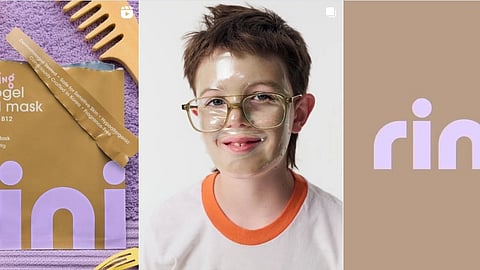The medical community's response to Rini has been swift and critical. Dr. Danny Guo, a double board-certified dermatologist in Canada and the United States with over 456,000 followers on social media, directly addressed the brand's marketing in a widely-viewed video response.
Responding to Rini's promotional tagline "Hydrating, gentle, kid-friendly, parent-approved," Dr. Guo stated: "Well, this parent does not approve. As a dermatologist and father of two kids, this is not okay. Why are we advertising face masks for kids now?"
Dr. Guo acknowledged that while hydrogel masks might be appropriate for some adults, "the right person is not this child." He emphasized that: "Most kids do not need more than a basic cleanser, moisturizer, and sunscreen. That's it. Kids do not need serums or sheet masks."
His critique extended beyond dermatological concerns to the psychological impact: "All we are doing by going down this direction of marketing beauty trends towards kids is creating early insecurity. Teaching them to focus on their looks this early in life is not self-care, it's conditioning."
The Commercial Success Despite Controversy


